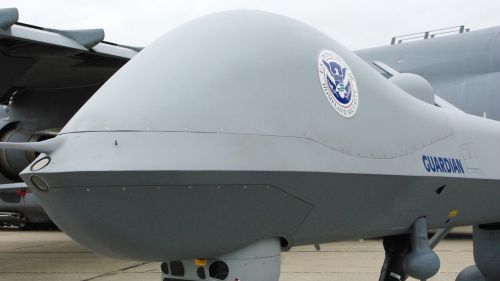
It’s a bird! It’s a plane! It’s a drone armed with an arsenal of video surveillance technology!
Today the ACLU filed Freedom of Information Act requests seeking records related to the federal government’s domestic use of Unmanned Aerial Systems (UAS) – better known as drones – as well as plans for the future rollout of drones in the United States. Drone technology is largely a product of our war efforts abroad, but the federal government is repurposing these machines for surveillance purposes at home.
We sent the FOIA requests to five federal agencies:
- Federal Aviation Administration: Following the FAA Modernization and Reform Act of 2012, the FAA has been tasked with developing a plan for incorporating drones into the national airspace by 2015, and authorizing private and public entities to utilize drones. We’d like to see the FAA’s records on drone flights as well as any policies they’ve been developing.
- Department of Justice: DOJ oversees several agencies that we know are using drones in the U.S., including the FBI and DEA. We’d like to know how each agency is using their own drones, drones that they’re borrowing, and drones that they’re lending.
- Department of Homeland Security: DHS also oversees several drone-totin’ departments, including U.S. Customs and Border Protection. We’d like to know how DHS is using, and sharing, its drones.
- General Services Administration: According to a recent GAO report, “Federal agencies that own or lease UAS report their UAS inventory, cost and utilization data to GSA.” We’ve asked them to share this information.
- U.S. Air Force: In a recent document implementing new policy, the Air Force listed several permissible domestic drone uses, including responding to natural disasters, counterintelligence, vulnerability assessments, training, and testing. We’d like to find out how they’ve been using drones for these purposes, or any others.
The ACLU wants to know how the government is using, acquiring, paying for, and sharing drones. We’ve asked the following questions to the government:
- How are drones being funded and purchased?
- What are the technical capabilities of drones that are being flown in the U.S.?
- What type of surveillance data is being captured, and how long is it being stored?
- Who can access drones and the data they capture?
- What other policies or procedures currently govern the domestic use of drones?
Though the full extent of government ownership of drones remains unclear, one example of government drone use involves U.S. Customs and Border Protection, which is using drones to patrol both our northern and southern borders. The U.S. Border Patrol owns nine drones and is awaiting the delivery of its tenth. Additionally, the Department of Justice is rumored to have four drones of its own that it loans out to police departments.
The ACLU released a report on domestic drones in December 2011, urging that rules be put in place to safeguard Americans’ privacy. The report recommends limits on when drones can be deployed and for what purposes, and calls for restrictions on retention of and access to data collected by drones employed for any purpose. Today’s FOIA requests seek to determine how extensively the government has heeded this advice.
The Electronic Frontier Foundation (EFF) filed a FOIA request in April of 2011 with the FAA to uncover data on the certificates of authorization (COAs) the agency has issued. One year later, after EFF sued the agency, they released a list of all 60 entities that have active, expired, or disapproved COAs. In July 2012, FAA released information for 18 of the 60 entities (who own 125 out of 300 total COAs) that included “extensive details about the specific drone models some entities are flying, where they fly, how frequently they fly, and how long they stay in the air.” Yesterday, EFF reported on their over 200 public records requests to local and federal agencies. With only 19 agencies responding with responsive documents so far, the verdict is still out on how local and federal agencies are utilizing, and plan to utilize, the new technology. Our requests build upon EFF’s by asking the federal government broader questions about its policies and plans for domestic drones.
The government wants drones for surveillance purposes. EFF points out that these drones are “made for watchin’.” Indeed, DARPA has developed a system of surveillance known as ARGUS-IS (Autonomous Real-time Ground Ubiquitous Surveillance-Imaging System). ARGUS-IS produces up to 65 video streams simultaneously, allowing for unprecedented citywide aerial surveillance, even in the dark. This technology is equivalent to utilizing 60 to 100 independent drones and is capable of surveilling tens of square miles simultaneously.
As drone technology becomes less expensive and more ubiquitous, the likelihood of government misuse and abuse of this unprecedented surveillance power increases proportionally. The public should know how the government is using drones in the U.S. and, perhaps more importantly, what it intends to do in the near future.
NOTE: On Thursday in Houston, the ACLU will testify before a Congressional field hearing held on much-needed privacy protections for domestic drone use by the government.




